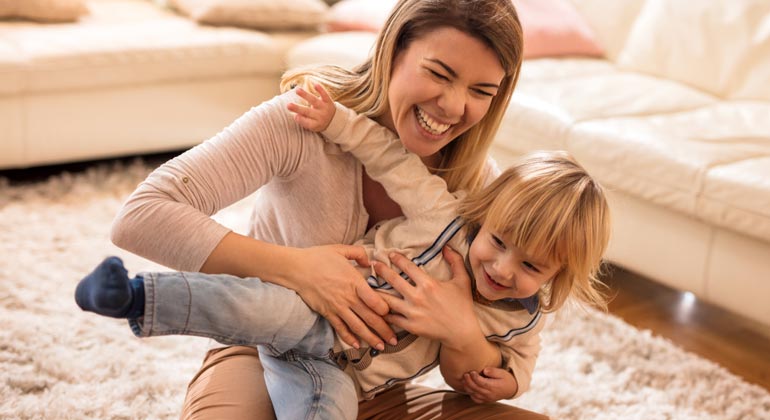Rethinking the “Do as I Say, Not as I Do” Mentality

Be a Role Model for your Children
Children are like sponges; they are constantly taking in the information they see and hear around them, and they’re watching everything you say and do. They see how you handle stress, how you treat other people, and how you manage your emotions. Children often grow up to have very similar behaviors, beliefs, and attitudes to their parents. When I walk into a preschool classroom I frequently see children pretending to be mommies and daddies, feeding their babies and rocking them to sleep, pretending to go to work, talking on the phone, and cooking dinner. They are imitating all the things they see and hear their parents do. Every day you are teaching your children by example how to react to situations, and if you are not aware of what you are doing, you may be teaching them something you don’t want them to learn.
Role modeling is one of the most powerful tools you have to influence the direction of your child’s personality. Consider what you can do to model the behaviors and attitudes that would reflect the kind of person you want your child to be. If we expect our children to share, apologize, be respectful, polite, kind, honest, and loving, we must do and be those things too, so they will have that model to imitate. Much of the learning that occurs during childhood is acquired through observation and imitation, so it is especially important to be very intentional about what behaviors you model for your children. Consider how you:
- Handle stress and frustration
- Respond to problems
- Express anger and other emotions
- Treat other people
- Deal with competitions, responsibilities, loss, mistakes
- Take care of yourself
Children gain the most from parents who demonstrate consistency between their values and actions, and they have more respect for adults who live by the rules they preach. Not only are your children watching you, but they are also listening to the way you speak, what you speak about, and the opinions you express. Think about how you talk to your children, your spouse, your friends, and anyone else you interact with. Train yourself to stop and think before you speak or react.
However, the reality is that no one is perfect. We all make mistakes from time to time, but what is most important when mistakes are made is the way you handle the situation. If you make a mistake, use it as a learning opportunity to teach your child what to do when you make a mistake.
- Acknowledge the mistake
- Accept responsibility for your part in it
- Apologize or determine a way to rectify the situation if possible
- Think about what you can do next time so you don’t make the same mistake
This is the same process you can use if you lose your patience with your children and respond to them in a negative way, as well as when your children make a mistake. You are modeling an approach to life that includes forgiveness, learning, and self-improvement.
Every time you say something, take an action, or have a reaction to someone or something, your child is observing your behavior. So whether you like it or not, you are a role model for your child and it is important to remember to practice what you preach.Take responsibility for yourself by admitting your mistakes and talk about how you can correct them. Show kindness and respect to others and yourself, and practice positive communication skills. Use problem-solving skills to deal with conflicts and challenges, work on anger management and remember to keep a positive attitude in your life. You are your child’s first teacher, so help them to become the person you want them to be.
Jamie Decker, LCPC, JCC Chicago Early Childhood Social Services






